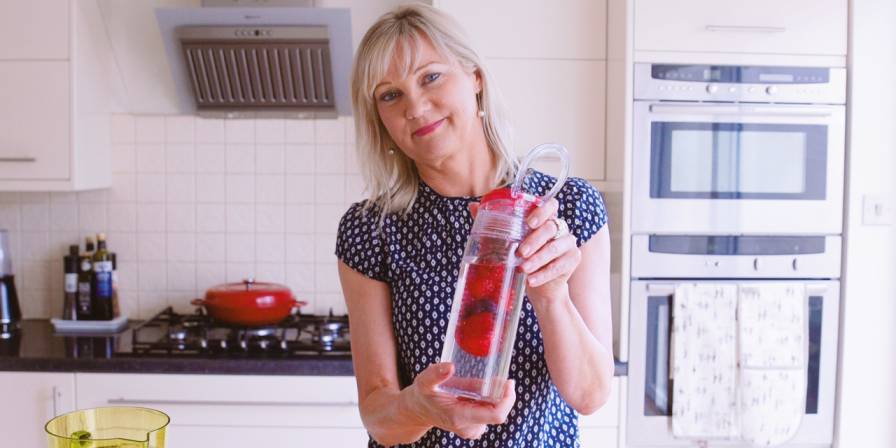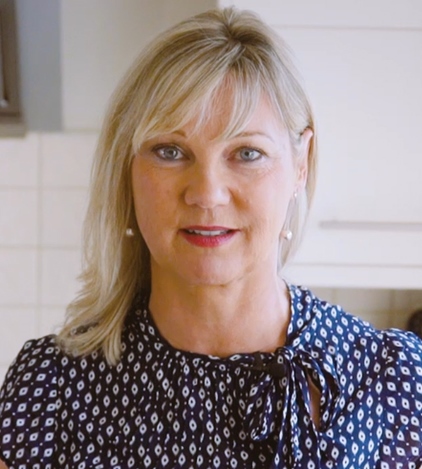Sales of diet drinks and flavoured waters have boomed in recent times, as sales of fizzy drinks have declined sharply. To be honest it has taken some time to see this much-needed drop in fizzy sugary drinks consumption.
Credit goes to all those primary and home economics teachers who supervise eye-opening projects yearly where students get stuck into measuring cube-by-cube the amount of unwanted sugar in popular drinks. There’s nothing like seeing those rickety towers of sugar cubes stacked one on top of the other to help us realise just some of the hidden components of these innocuous looking drinks.
It certainly helps some young people to understand just why parents caution against too much of the stuff! Maybe there was something in what Mum was harping on about after all?
Of course, parents trying to wean young children off fizzy drinks need alternatives for lunch-time and the sports bag. Now one in four are given flavoured water five times a week (according to research carried out by laya healthcare) Well it’s water, it’s affordable and it’s got pictures of whole fruits on the bottle – what could be wrong with a refreshing forest-fruit flavoured water?
The reality is that these drinks are not good every-day choices at lunch time or to drink before, during and after sports. Some flavoured waters will contain added sugar and others contain intense sweeteners and additives. Many contain fruit ‘flavouring’ as opposed to any real fruit.
You won’t see flavoured water bottles stating on the front label ‘contains the intense sweetener sucralose’, ‘Contains the colour Ponceau 4R which may have adverse effects on activity and attention in children’ or ‘contains the preservative Sodium Benzoate’. This is found on the back of the bottle, in small font and takes time to find. They are counting on you being too busy or pre-occupied to read the label. And many of us are.
So here’s what flavoured water might contain depending on the choice available in the supermarket or forecourt; some added sugar, fruit juice (with no fibre), flavourings and additives such as intense sweeteners, colours that might affect children’s behaviour and tooth-unfriendly citric acid.
Granted there are carbonated flavoured waters without added sugar or fruit juice. These drinks have fewer calories and sugar, but the flavourings and intense sweeteners they contain do nothing to wean us off a ‘sweet’ habit. The long-term effects of children drinking beverages with added sweeteners day after day are unknown, so it’s best to give these drinks only occasionally and in small amounts. Ideally they should be consumed over the course of a meal.
There is still no scientific consensus on the health impacts connected to sweeteners. Some studies have suggested that the use of foods and drinks containing sweeteners can help with weight loss. Others have shown that consumption of diet drinks and foods may paradoxically lead to weight gain, perhaps because exposure to intensely sweet tasting foods can trigger a craving for more. Or it may be that people who drink a sweetened drink may think they can indulge in second helpings of something else.
The health benefits of sweeteners are inconclusive, with research showing mixed findings. Research findings have prompted more questions about whether drinks flavoured with artificial sweeteners can increase the risk of serious illness, as heavily sugared drinks have already been shown to do. Some preliminary research suggests sweeteners can disrupt the gut microbes which are important for our metabolism, weight and health. Additives found in flavoured water (such as preservatives, acidity regulators, sweeteners and colours) are currently being assessed by EU scientists.
So until we are clear about additives such as intense artificial sweeteners it’s best to stick to plain tap water. If your child really needs some encouragement to drink plain water – you can have some fun making flavoured water at home - without any additives, inexpensively and easily.
Websites and shops sell fabulous reusable water bottles with infusers. Home-made flavoured water is as simple as adding some chucks or slices of your favourite seasonal fruit to tap water. Things like sliced citrus fruit (orange), vegetables (strands of cucumber) or herbs/spices alone or in combos (mint leaves) (sliced pear and cinnamon stick) look great and taste fresh and delicious too. And kids can also eat the fibre-rich fruit from the infuser, after drinking the water.
Don’t be fooled by the use of the word diet. ‘Diet’ drinks and ‘flavoured’ waters were dreamed up as good descriptions by an industry wanting to lull you into believing that it has a healthy thirst-quenching alternative to fizzy drinks. Save your money and use good old-fashioned tap water instead.



